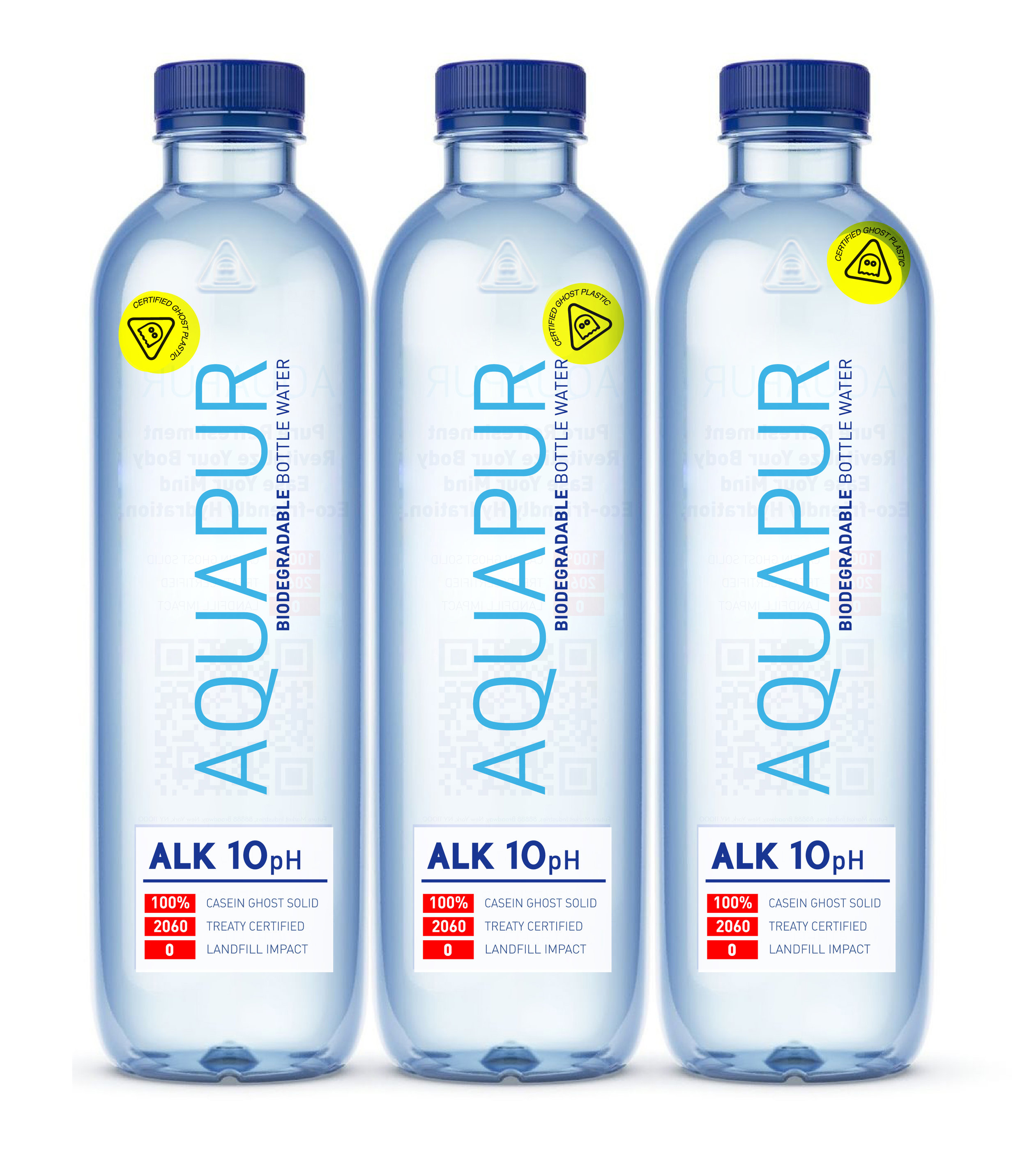Aqua Pur
Eco-friendly hydration.
$1.69
AquaPur is fresh drinking water from nature’s purest sources. Proudly bottled in casein-based Ghost Plastic, you can hydrate with its fresh taste and confidently return the convenient package back to the earth, knowing that it will biodegrade in just four weeks. Nourish your body with our vapor-distilled water, and nourish the environment with our all-natural, safe bottles.
About AQUAPUR
Enjoy the pure, clean taste of complete hydration with AquaPur. It’s nature’s finest, vapor-distilled water, bottled in casein-based Ghost Plastic, so you can quench your thirst and ease your environmental conscience at the same time.
Our sleek, Ghost Plastic bottles are contoured with you in mind and offer an eco-friendly way to enjoy hydration on the go. Made with synthetically cultured casein, an enzyme once derived from milk, Ghost Plastic bottles are strong and flexible enough to keep up with your active lifestyle. Once you’re finished enjoying AquaPur, you can safely toss our bottles knowing that they’ll biodegrade and turn into fertilizer for the soil on its own in just four weeks. Compared to plastic bottles from 25 years ago, we’ve come a long way.
Pure refreshment is at your fingertips. Revitalize your body and ease your mind with AquaPur -- Eco-friendly hydration.
Concept Inspired By...
AquaPur was inspired by the following movements, technologies, and trends in food today.
Sustainability At Scale: A concept that imagines how food companies might create products that are more sustainable as they scale, not less. Agriculture is one of the most intensive systems impacting the health of our planet. Can we take the most sustainable farming practices--crop rotation, organic agriculture, permaculture--and make these practices the rule, instead of the exception?
Sample Organizations: Back to the Roots, Blue Hill, Annie’s
Read More: Brand Channel (http://bit.ly/2T6aUEm), Washington Post (https://wapo.st/2CzyGDm)
Sustainable Materials: materials used in the preparation, transport, and containment of food that naturally biodegrade and enrich the soil. These materials are typically not made from petroleum based plastics. Rather, they are made from renewable biomass, such as vegetable fats and oils, corn starch, microbiota, or other organic material such as casein or cassava.
Sample Organizations: USDA’s Casein Plastic, Avani Eco
Read More: The New York Times (https://nyti.ms/2T99vgb) & Bloomberg (http://bloom.bg/2bMjQKL) & CNN (http://cnn.it/2r2zImm)


